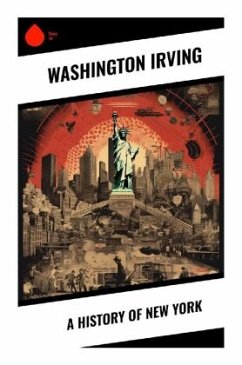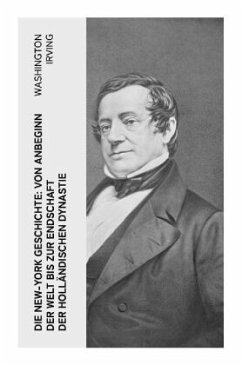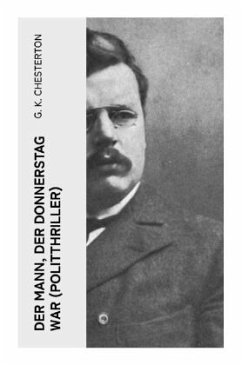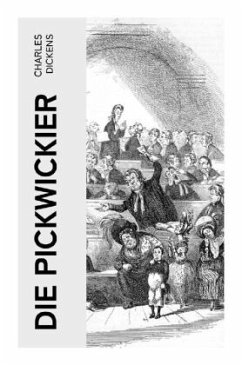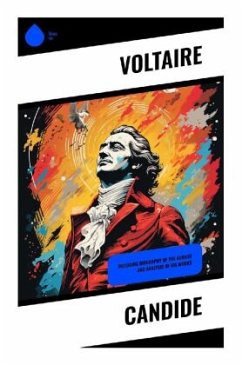
Knickerbocker's History of New York
From the Beginning of the World to the End of the Dutch Dynasty
Versandkostenfrei!
Versandfertig in 6-10 Tagen
13,50 €
inkl. MwSt.

PAYBACK Punkte
0 °P sammeln!
In "Knickerbocker's History of New York," Washington Irving weaves a captivating narrative that blends satire, historical fact, and whimsical fiction. Set against the backdrop of New York City's early history, Irving adopts the fictitious persona of Diedrich Knickerbocker to explore the Dutch colonial era, providing readers with both a humorous and critical examination of the city's burgeoning identity. His unique literary style, characterized by engaging prose and rich anecdotal digressions, reflects the burgeoning American romanticism of the early 19th century. Irving's work serves not only ...
In "Knickerbocker's History of New York," Washington Irving weaves a captivating narrative that blends satire, historical fact, and whimsical fiction. Set against the backdrop of New York City's early history, Irving adopts the fictitious persona of Diedrich Knickerbocker to explore the Dutch colonial era, providing readers with both a humorous and critical examination of the city's burgeoning identity. His unique literary style, characterized by engaging prose and rich anecdotal digressions, reflects the burgeoning American romanticism of the early 19th century. Irving's work serves not only as a historical account but also as a sociocultural commentary on the contributions and complexities of early American life, positioning it as a seminal text in the canon of American literature. Washington Irving, often celebrated as the first American professional author, drew inspiration from his own experiences growing up in New York and his fascination with the city's diverse heritage. His background as a writer in the post-Revolutionary period, coupled with his keen interest in folklore and legend, informs his richly constructed narrative voice and satirical perspective. Through "Knickerbocker's History of New York," Irving critiques societal norms while simultaneously honoring the city's Dutch roots, bridging past and present in a uniquely American style. This book is highly recommended for readers interested in early American literature, urban history, and the art of satirical storytelling. Irving's pioneering approach not only entertains but also enlightens, making it an essential read for anyone seeking to understand the cultural tapestry of early America and the formation of New York City's identity.



